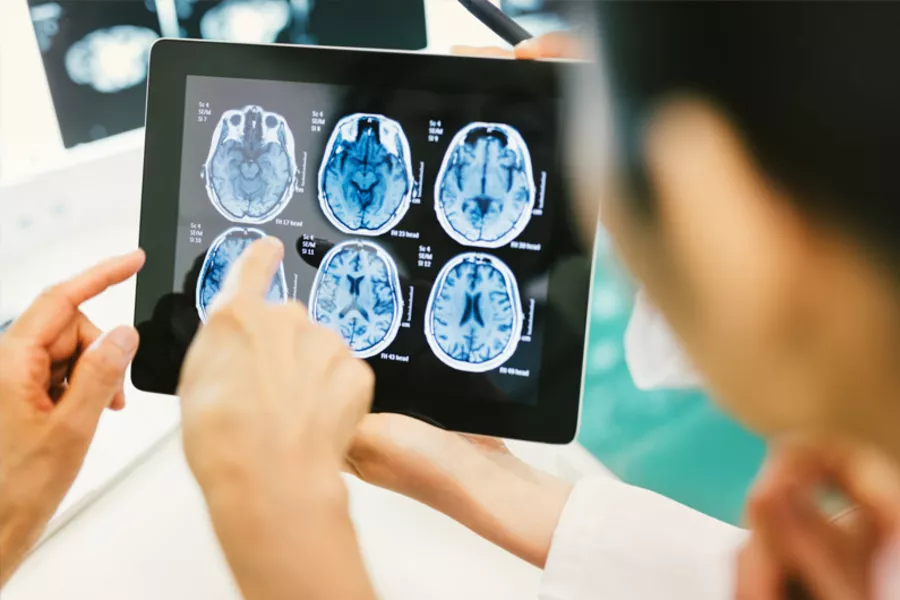Brain Cancer
Brain cancer happens when brain and spinal cells grow out of control to form a tumour. These tumours don’t often spread to other parts of the body but they can sometimes spread through the brain tissue.

Even benign tumours can be a problem in the brain or spinal cord. As they grow, healthy brain tissue can be destroyed or compressed. This causes damage to the brain that can be disabling and sometimes fatal.
In more detail
Brain cancer starts in the central nervous system and causes different symptoms depending on the location of the tumour. The large outer part of the brain is called the cerebrum and a tumour in this area can cause a range of symptoms: seizures, difficulty speaking, a change of mood or personality, weakness or paralysis of part of the body, and changes in vision, hearing, or other sensations.
A tumour in the basal ganglia part of the brain usually causes weakness in the body but can also cause tremor or other involuntary movements.
Tumours in the cerebellum may cause problems with balance, fine motor skills, swallowing and changes in rhythm of speech.
Tumours in the brain stem can cause many symptoms like weakness, loss of sensation, stiff muscles, and problems with facial and eye movement or with swallowing. Because of the size and importance of the brain stem, it may not be possible to surgically remove tumours from this area.
Depending on where in the spinal cord a tumour is positioned, it may cause weakness, paralysis, numbness or problems in the bladder and bowel. Tumours starting in cranial nerves may cause vision problems, trouble swallowing, hearing loss in one or both ears, facial paralysis, numbness, or pain.










